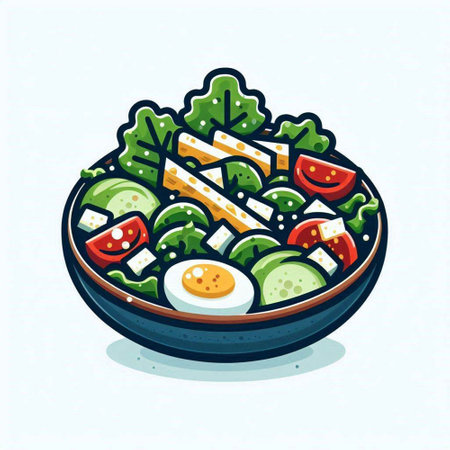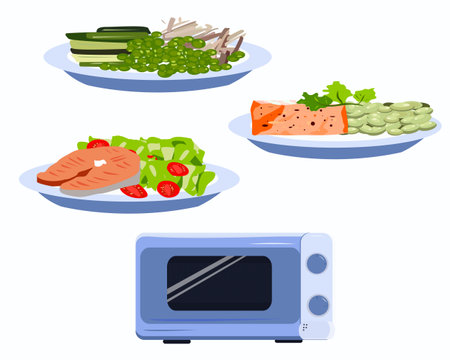Introduction to Superfoods for Dogs
As devoted dog owners across the UK know, providing our canine companions with a nutritious diet is one of the most meaningful ways to show we care. In recent years, “superfoods” have become a buzzword in human nutrition, but these nutrient-dense foods can also play a valuable role in our pets’ wellbeing. Superfoods are simply natural ingredients packed with vitamins, minerals, and antioxidants that offer health benefits above and beyond standard fare. For British dog owners, thoughtfully adding superfoods to your pet’s daily meals can help support everything from shiny coats to strong immune systems—while also making mealtimes a little more exciting. It’s not about radical changes or expensive trends, but gently enhancing your dog’s diet with wholesome additions suited to their needs and the British climate. By understanding what superfoods are and why they matter, you’ll be well equipped to make informed, caring choices for your four-legged friend.
Top British-Friendly Superfoods for Dogs
When it comes to enriching your dog’s diet with wholesome nutrition, British pet owners are fortunate to have a wide range of superfoods readily available in local supermarkets and farmers’ markets. These superfoods not only offer essential vitamins and minerals but also support your dog’s overall well-being. Below, we highlight several UK-accessible superfoods—salmon, sweet potatoes, kale, and blueberries—and explore how they can benefit your canine companion.
Salmon: Rich in Omega-3s
Salmon is a fantastic source of high-quality protein and omega-3 fatty acids, both crucial for maintaining healthy skin and a glossy coat. For dogs prone to allergies or sensitive skin, salmon provides anti-inflammatory properties and supports cognitive function. Ensure the salmon is cooked thoroughly and free from bones before serving.
Sweet Potatoes: A Gentle Source of Fibre
Sweet potatoes are gentle on dogs’ digestive systems and offer a rich supply of dietary fibre, vitamins A and C, and antioxidants. They’re perfect as a hypoallergenic carbohydrate alternative for dogs with grain sensitivities. Steamed or baked sweet potato chunks make an excellent treat or meal addition.
Kale: Packed with Nutrients
Kale is abundant in iron, calcium, and vitamins K, A, and C. This leafy green helps to strengthen immune systems and promote bone health. To make kale more digestible for dogs, steam it lightly before mixing into their food.
Blueberries: Antioxidant Powerhouses
Blueberries are small but mighty when it comes to antioxidants. These little berries help protect your dog’s cells from damage while supporting brain health and contributing to a robust immune system. Offer them fresh or frozen as a nutritious snack.
A Quick Reference Table for British Superfoods
| Superfood | Main Benefits | How to Serve |
|---|---|---|
| Salmon | Healthy skin & coat, brain support | Cooked, boneless portions |
| Sweet Potatoes | Digestive health, rich in vitamins | Baked or steamed slices/chunks |
| Kale | Boosts immunity & bone strength | Lightly steamed, chopped finely |
| Blueberries | Antioxidant-rich, supports cognition | Fresh or frozen as treats |
Incorporating these British-friendly superfoods into your dog’s meals can make a world of difference to their vitality and happiness. Always introduce new foods gradually and consult your vet if you have concerns about allergies or portion sizes.

3. How to Safely Incorporate Superfoods
Introducing superfoods into your dog’s diet should always be done with care and consideration, especially for British pet owners mindful of their furry friend’s wellbeing. Start by selecting one new superfood at a time, such as blueberries, carrots, or kale, and offer it in small quantities to observe any reactions. It’s best to prepare these foods plainly—steaming vegetables or serving fruits raw and chopped minimises the risk of digestive upset. Remember, not all dogs tolerate every superfood; breeds common in the UK, like Labradors or Cocker Spaniels, can sometimes be prone to food intolerances or allergies. Always watch for signs such as itching, upset stomach, or changes in stool when introducing something new.
Appropriate Portion Sizes
Portion control is crucial. Superfoods are meant to complement a balanced diet, not replace it. As a general rule, treats—including healthy additions—shouldn’t make up more than 10% of your dog’s daily calorie intake. For example, a medium-sized dog might enjoy two or three blueberries or a few thin carrot slices as a snack. Overfeeding even healthy options can lead to weight gain or digestive issues.
Preparation Tips
Always wash fruits and vegetables thoroughly to remove any pesticides or residues. Avoid adding salt, sugar, oils, or seasoning—plain is best for canine consumption. When offering seeds like chia or flaxseed, grind them first so your dog can digest them effectively.
Be Mindful of Breed-Specific Sensitivities
Certain British breeds may have hereditary sensitivities—for instance, Boxers and Bulldogs sometimes struggle with grains, while Westies can be prone to skin allergies triggered by particular foods. If you’re uncertain about a superfood’s suitability for your pet, consult your vet before making changes. A gradual approach ensures both safety and enjoyment for your beloved companion.
4. Homemade Superfood Recipes
Preparing homemade meals is a wonderful way for British dog owners to ensure their pets benefit from the freshest and most nourishing superfoods. By using locally sourced ingredients, you can create tasty dishes that celebrate Britain’s rich agricultural heritage while supporting your dog’s health. Here are two easy, wholesome recipes inspired by classic British flavours and nutrition.
Hearty Salmon & Oat Bake
This recipe combines the omega-3 richness of Scottish salmon with the energy-giving power of British oats, making it an excellent choice for shiny coats and healthy hearts.
| Ingredient | Amount | Nutritional Benefit |
|---|---|---|
| Cooked Scottish salmon (boneless) | 100g | Omega-3 fatty acids for skin & coat health |
| Porridge oats (uncooked) | 50g | Fibre for digestion & slow-release energy |
| Carrot (grated) | 1 small | Beta-carotene for eye health |
| Garden peas (cooked & mashed) | 50g | Plant protein & vitamins B, C, K |
| A splash of rapeseed oil | 1 tsp | Healthy fats & vitamin E |
Instructions:
- Preheat oven to 180°C (fan).
- Mix all ingredients thoroughly in a bowl.
- Spoon into a baking dish and press down gently.
- Bake for 20–25 minutes until firm and golden. Cool before serving in appropriate portions.
Crispy Apple & Parsnip Treats
An irresistible snack for dogs, these treats use classic British apples and parsnips—both packed with fibre and gentle sweetness that’s safe for canine tummies.
| Ingredient | Amount | Nutritional Benefit |
|---|---|---|
| Bramley apple (cored, peeled & grated) | 1 medium | Vitamin C & dietary fibre |
| Parsnip (peeled & grated) | 1 small | Manganese, potassium & fibre |
| Porridge oats (uncooked) | 30g | Sustained energy release & digestive support |
| A drizzle of local honey (optional) | 1 tsp | Naturally sweet flavour; antimicrobial properties* |
*Never give honey to puppies under one year old or diabetic dogs.
Instructions:
- Preheat oven to 160°C (fan).
- Combine all ingredients in a mixing bowl.
- Spoon teaspoon-sized amounts onto a lined baking tray and flatten slightly.
- Bake for 15–20 minutes until crisp and lightly golden. Cool thoroughly before offering as a treat.
Caring Tip:
If your dog has specific dietary needs or allergies, always consult your vet before introducing new foods or recipes. Start with small portions to monitor tolerance. These homemade delights add variety, enrichment, and true British flavour to your dog’s superfood journey!
5. Common Mistakes and Foods to Avoid
While adding superfoods to your dog’s diet can bring numerous health benefits, it’s essential for British pet owners to be aware of certain foods that are not only unsuitable but potentially dangerous. Some items commonly found in UK households—such as grapes, raisins, onions, garlic, and chocolate—are highly toxic to dogs and should never be included in their meals. Even small amounts of these foods can lead to serious health issues, including kidney failure, digestive distress, or worse.
Another frequent mistake is offering too many treats or unfamiliar foods at once. Sudden changes in diet can upset your dog’s stomach or cause allergic reactions. It’s important to introduce new superfoods gradually, observing how your pet responds before making them a regular part of their meals.
Be Mindful of Hidden Dangers
British cuisine often includes dishes with rich sauces, spices, or artificial sweeteners like xylitol (found in some sugar-free snacks), all of which are unsafe for dogs. Leftover Sunday roast trimmings might seem tempting to share, but they often contain ingredients or seasonings harmful to pets. Always check food labels and avoid giving your dog anything you’re unsure about.
Consult Your Local Vet
Before making significant changes to your dog’s diet—especially when introducing new superfoods—it’s wise to consult with your local vet. Each dog has unique nutritional needs depending on breed, age, size, and medical history. A veterinary professional can offer guidance tailored specifically for your furry friend and help prevent accidental harm.
A Little Care Goes a Long Way
By steering clear of dangerous foods and taking the time to research or ask for advice, you’ll ensure that your beloved companion enjoys the benefits of a balanced, nourishing diet safely. Remember: when in doubt, always err on the side of caution and seek expert advice.
6. Stories from British Dog Owners
When it comes to introducing superfoods into a dog’s diet, there’s nothing quite as reassuring as hearing directly from fellow British pet owners. Their personal journeys can offer practical tips and encouragement for those considering this nutritional upgrade. For instance, Sarah from Surrey shared that adding blueberries and a spoonful of natural yoghurt to her Labrador Bella’s breakfast helped improve her coat’s shine and seemed to boost her playful energy levels. She recommends starting small, “Just introduce one new ingredient at a time, so you can see how your dog reacts.”
Meanwhile, Tom in Manchester has been sprinkling chia seeds over his spaniel Max’s meals. He noticed not only better digestion but also less itching during allergy season. Tom notes, “I buy my chia seeds from the local health shop – they’re not expensive, and Max loves the crunch.” Similarly, Anne from Edinburgh adds steamed broccoli and carrots to her terrier’s bowl twice a week. She says, “It’s made meal times more exciting, and my vet commented on how healthy Fergus’s teeth and gums look.”
Some owners like Raj in Bristol have experimented with turmeric paste for joint care in older dogs. “Our golden retriever Archie is nearly ten, and after a month of turmeric mixed into his food, he seems less stiff in the mornings,” Raj explains. He advises checking with your vet before making major changes or if your dog has pre-existing conditions.
For anyone new to superfoods, these stories highlight key advice: always introduce foods gradually, monitor for any adverse reactions, and consult with your local vet or canine nutritionist if unsure. Many British owners emphasise sourcing ingredients locally where possible—like fresh berries from farmers’ markets or organic veg boxes—as a way of supporting both their pets’ health and UK producers.
7. Conclusion and Further Resources
In summary, incorporating superfoods into your dog’s diet can be a wonderful way to support their overall health and wellbeing. British owners have a wealth of nutritious options available, from locally-sourced berries and root vegetables to oily fish rich in omega-3s. It’s important to introduce new foods gradually and always consult your vet, especially if your dog has specific dietary needs or sensitivities. Remember, superfoods should complement a balanced canine diet rather than replace it.
Key Points to Remember
- Superfoods such as blueberries, carrots, pumpkin, salmon, and kale offer unique nutritional benefits for dogs.
- Choose fresh, high-quality ingredients whenever possible and serve them in moderation.
- Always check that any new addition is safe for dogs—some human foods can be harmful to pets.
- Consult with your veterinarian before making significant changes to your pet’s diet.
Trusted UK Resources for Dog Nutrition
- The Kennel Club: thekennelclub.org.uk – Offers advice on feeding and caring for dogs in the UK.
- PDSA (People’s Dispensary for Sick Animals): pdsa.org.uk – Provides comprehensive guides on healthy diets for pets.
- RSPCA: rspca.org.uk/adviceandwelfare/pets/dogs/food – Covers nutritional requirements and safe food choices for dogs.
- BVA (British Veterinary Association): bva.co.uk – For professional advice and latest research on animal nutrition.

